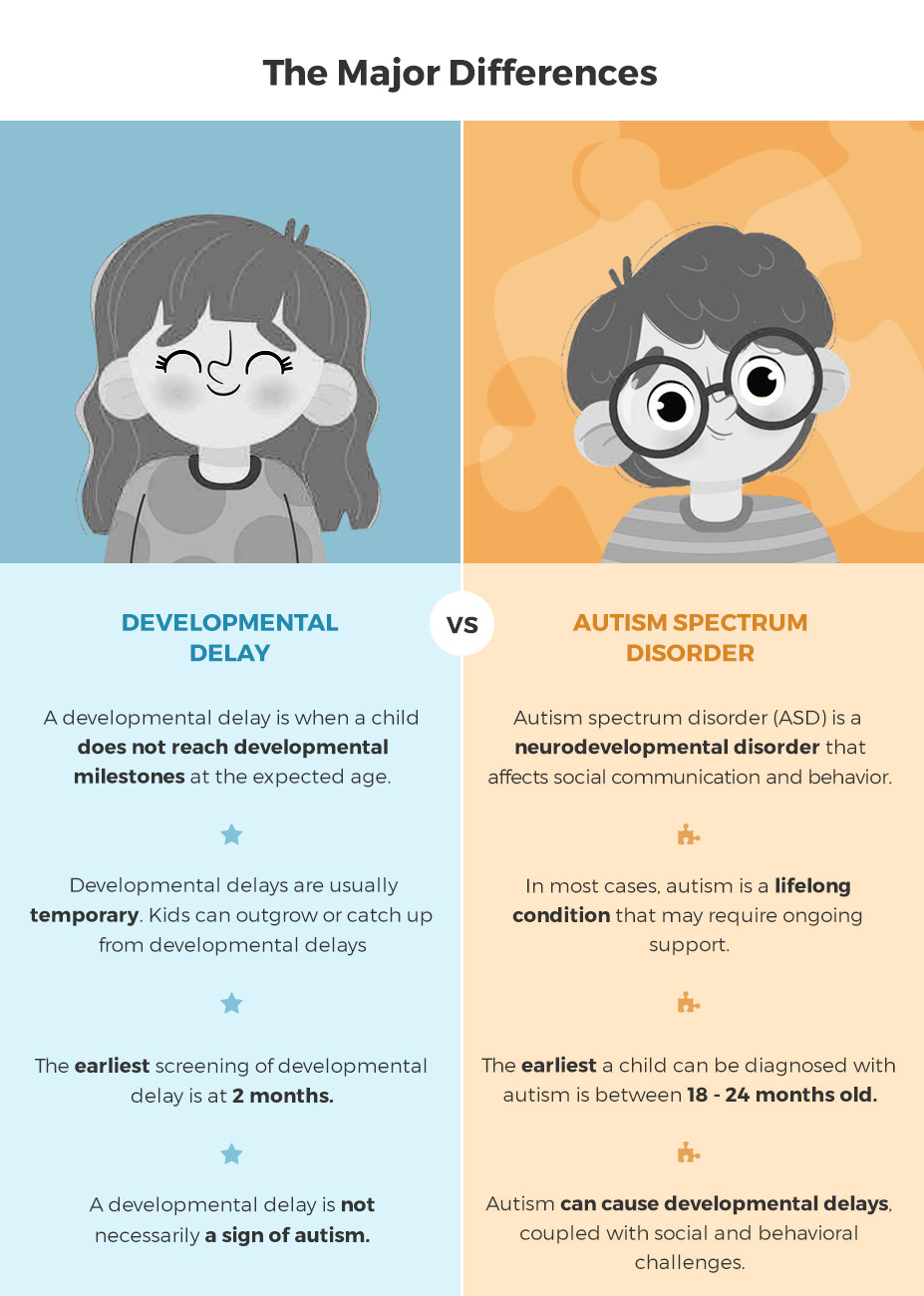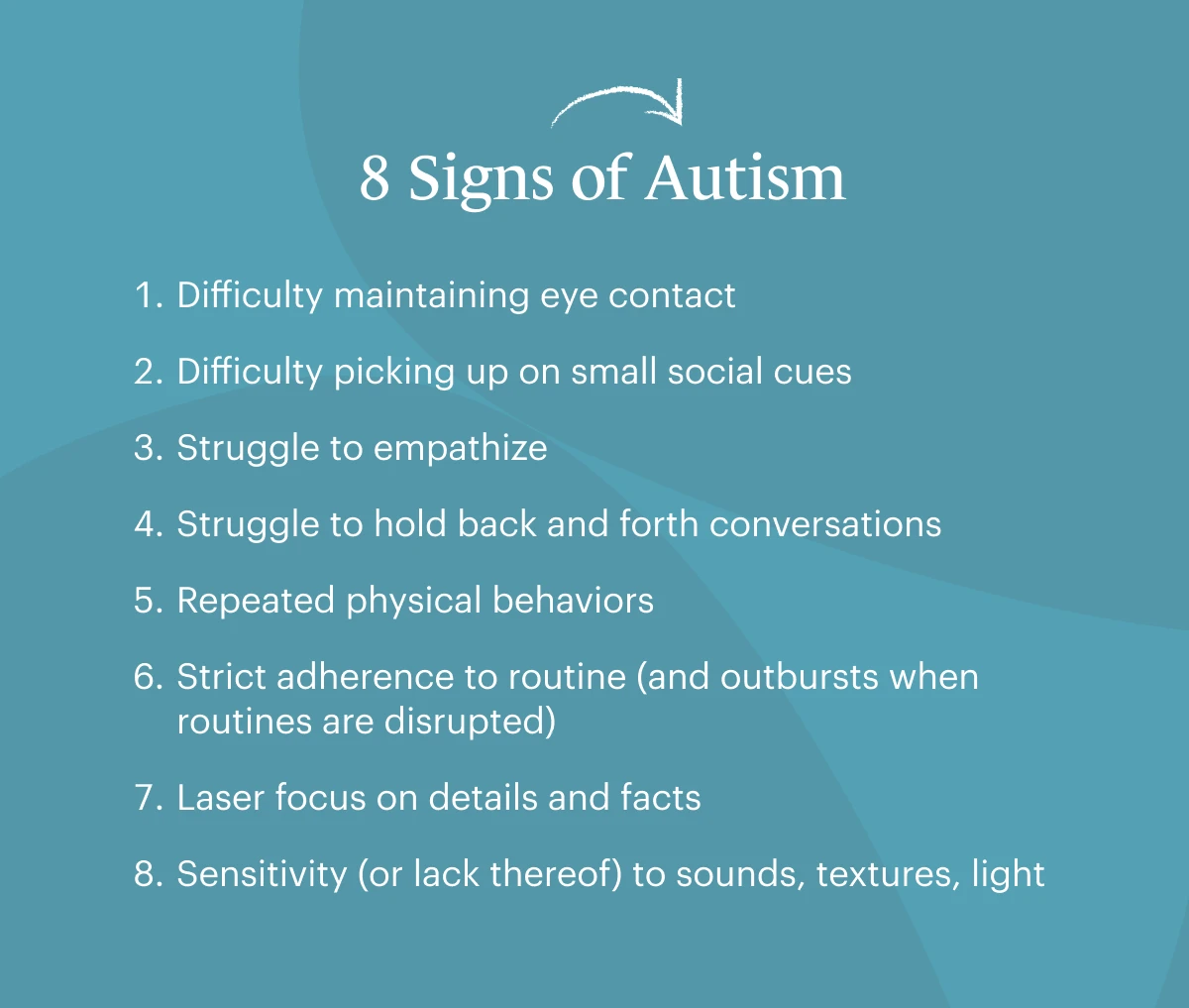How experts in Autism Spectrum Therapies address nonverbal communication barriers
How experts in Autism Spectrum Therapies address nonverbal communication barriers
Blog Article
Key Symptoms And Signs to Identify in Individuals With Behavior Autism
When you run into somebody with behavioral autism, acknowledging vital symptoms and signs is crucial. You might notice challenges in social interactions and interaction, along with a solid requirement for routines. Additionally, sensory sensitivities can lead to frustrating experiences. Understanding these characteristics can improve your assistance and treatments, however there's more to discover concerning how these behaviors manifest in day-to-day circumstances. Let's discover what these indicators truly appear like.
Difficulties in Social Interactions
When you connect with a person on the autism range, you might see they fight with social cues and interaction. These difficulties can make social communications feel overwhelming for them. You might see them staying clear of eye call or standing also close or also away during conversations, which can create misconceptions. They could not detect body language or facial expressions, making it harder for them to gauge exactly how others are really feeling.
Furthermore, you might locate that they prefer regimens and familiar settings, which can limit their desire to take part in brand-new social circumstances. When they do involve, they could chat regarding their interests in terrific detail without seeing if you're interested. This can lead to prejudiced discussions that leave you really feeling disconnected. Comprehending these difficulties can aid you come close to interactions with compassion and persistence, cultivating a much more comfortable setting for both of you.
Trouble With Verbal and Non-Verbal Interaction

Non-verbal communication can be much more tough. You could see an absence of eye get in touch with or limited use of gestures, which can make communications really feel unpleasant. Faces might not always straighten with the discussion, resulting in complication about their feelings. Acknowledging these indicators is important, as it assists you far better support and involve with individuals on the autism spectrum. By recognizing their interaction challenges, you can cultivate much more purposeful connections and supply a more helpful environment.
Recurring Behaviors and Routines
Interaction obstacles typically come with other signs of autism, such as repeated behaviors and a solid preference for regimens. You might discover that people with autism typically take part in specific, repeated activities, like hand-flapping, rocking, or duplicating phrases. These habits can provide comfort and a sense of control in an usually frustrating world.
When they adhere to an organized timetable,Routines are equally crucial; many individuals flourish. You may find that changes to these routines can result in considerable distress. For instance, if they have a day-to-day ritual of consuming breakfast at a specific time or adhering to a specific route to college, any kind of disturbance can create anxiety.
Acknowledging these patterns assists you comprehend their behavior and provide assistance. By fitting their demand for routine and allowing recurring actions, you can create an extra comfortable environment that reduces their difficulties.
Sensory Sensitivities

Usual Sensory Triggers
Sensory sensitivities can substantially affect every day life for individuals with autism, as particular stimuli frequently cause overwhelming responses. Typical sensory triggers consist of loud noises, brilliant lights, and strong scents. You might see that sudden audios, like alarms or alarms, trigger anxiousness or distress. In a similar way, fluorescent illumination in shops can really feel uneasy and rough. Appearances can additionally play a significant function; rough materials or particular food textures may be unbearable for you. In addition, crowded places can overwhelm your senses, making it difficult to relax or focus. Comprehending these triggers can assist you handle your setting much better. By being aware of what affects you, you can take steps to lessen pain and improve your daily experiences.
Behavior Responses Explained
Comprehending your behavioral feedbacks to sensory level of sensitivities is necessary, as they often disclose exactly how you interact with the globe. You could discover that certain audios, lights, or appearances bewilder you, leading to anxiety or pain. When faced with these stimulations, you might withdraw, cover your ears, or also react aggressively. These responses aren't simply quirks; they're your method of managing overstimulation. You might also find on your own seeking details sensory experiences, like deep pressure or quiet atmospheres, to help ground on your own. Recognizing these patterns aids you comprehend your demands much better and can lead exactly how you communicate them to others. By recognizing your sensory sensitivities, you can function towards producing an atmosphere that really feels a lot more manageable and comfortable for you.
Coping Methods Review
Recognizing your sensory sensitivities is simply the first action; now it's time to explore coping techniques that can assist you take care of those experiences efficiently. Beginning by creating a sensory toolkit tailored to your needs. Establishing a structured routine can likewise give predictability, reducing anxiety around sensory overload.
Restricted Interests and Focus
While numerous individuals develop a vast array of rate of interests, those with autism usually demonstrate limited interests and an extreme concentrate on particular website link topics. You could observe that somebody with autism can invest hours delving right into their preferred subject, whether it's a particular kind of train, a particular film, or a scientific principle. This intense emphasis isn't just a leisure activity; it can end up being a main part of their identification and social communications.
You may locate that discussions revolve around these passions, and they may struggle to involve in more comprehensive subjects. For them, these concentrated interests supply convenience and a feeling of proficiency. While it is necessary to urge exploration of new topics, respecting their interests is equally essential. By recognizing and acknowledging these limited passions, you can foster an encouraging environment where they feel valued and recognized, enabling for even more purposeful links and interactions.
Emotional Policy Problems
Individuals with autism commonly encounter challenges in psychological regulation, which can be influenced by their extreme focus on particular passions. You may observe that when a person is deeply participated in a favored task, they can find here experience strong emotions, whether enjoyment or frustration. When points do not go as prepared., this intensity sometimes makes it difficult for them to shift gears or handle their sensations - Autism Spectrum Therapies.

Variability in Developmental Turning Points
When it comes to developmental milestones, you'll observe that people with autism frequently show a vast range of variability. You may see a kid succeed in language abilities however battle with social communications.
It's vital to acknowledge that each individual's journey is one-of-a-kind. Observing these patterns can assist you comprehend their strengths and requires better.
Frequently Asked Questions
How Is Autism Detected in Kid and Grownups?
To identify autism in kids and adults, specialists evaluate actions, interaction abilities, and social interactions. They usually make use of standardized tests, interviews, and observations to identify if an individual satisfies the standards for autism spectrum condition.
Are There Various Types of Autism Range Disorders?
Yes, there are different kinds of autism range disorders, consisting of Asperger's disorder and pervasive developing disorder-not otherwise specified. Each kind varies in extent and attributes, so understanding these differences can help you far better assistance individuals with autism.
What Treatments Work for People With Autism?
When taking into consideration efficient treatments for people with autism, you'll discover alternatives like Applied Habits Analysis, speech treatment, and occupational treatment. Each method can help enhance communication, social abilities, and day-to-day operating customized to specific demands.
Can People With Autism Lead Independent Lives?
Yes, people with autism can lead independent lives. With the best assistance, skills training, and resources, you can help them establish self-sufficiency, handle everyday jobs, and flourish in different atmospheres, fostering their freedom.
Just How Can Households Support Loved Ones With Autism?
You can support your enjoyed ones with autism by creating an organized atmosphere, urging their passions, practicing persistence, promoting interaction, and promoting social abilities. Celebrate their success, despite exactly how tiny, and build a helpful neighborhood.
Although many individuals on the autism range can use and comprehend language, they usually face substantial challenges with both verbal and non-verbal communication. Recognizing these indications is necessary, as it helps you better assistance and engage with individuals on the autism range. You may notice that individuals with autism frequently engage in specific, repetitive activities, like hand-flapping, shaking, or duplicating phrases.Sensory level of sensitivities can substantially affect everyday life for individuals with autism, as particular stimulations usually cause frustrating reactions.When it comes to developing turning points, you'll discover that people with autism commonly show a wide array of variability.
Report this page